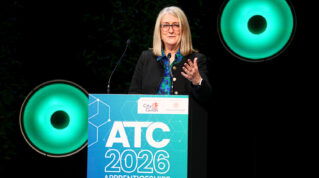Most of the growth in adult FE learners last year was down to Multiply courses, FE Week analysis has found.
New participation statistics released today show that of the 75,300 extra adult learners in education and training in 2022/23, 70 per cent took a course through the prime minister’s maths scheme.
There were just over 1.8 million adult learners in FE and skills in 2022/23, up 5.8 per cent on the year before. While now firmly back to pre-pandemic levels of 2019/20, there were still 1.3 million fewer adult learners in the system than in 2010/11.
This is the first-time participation statistics have been released for a full academic year of the Multiply programme, which was announced by then-chancellor Rishi Sunak in the 2021 spending review and launched the following April.
Sunak committed £ 560 million from the government’s UK shared prosperity fund across three financial years to “transform the lives” of half a million adults with low maths skills.
But the rollout has not gone smoothly.
A planned £100 million online learning platform was shelved and over £30 million of local authoring allocations were handed back to Treasury. Local leaders said they couldn’t spend the money they were allocated because the DfE approved their funding plans mid-year, leaving them with little time to recruit and provide the courses before having to hand that year’s money back.
Today’s data shows that 52,600 adults took part in a Multiply course in England in the 2022/23 academic year. Multiply courses had to be designed to help adults progress to a level 2 maths qualification, rather than provide the qualifications themselves. Nearly all – 96 per cent – of Multiply learners did a course without a level.
Of those learners, 70 per cent were women and just over a third were aged over 45. Of all Multiply enrolments, 69 per cent achieved.
For the first time this year, Multiply learners count towards the overall education and training measure which includes largely classroom-based courses and excludes apprenticeships and community learning.
Education and training student numbers increased by 8.5 per cent in 2022/21 compared to the year before, an increase of 75,300 students, of which 52,600 were Multiply students.
Free courses for jobs slashed advanced learner loans
Demand for level 3 courses under the government’s free courses for jobs policy has grown slightly. In 2022/23, 24,740 enrolments were recorded through the scheme, which provides full funding for certain level 3 qualifications, up from 19,700 the year before.
This brings the total number of enrolments since its launch in April 2021 to 49,220.
Before free courses for jobs was introduced, learners would typically have to take out an advanced learner loan to cover their course fees for level 3 courses, unless they had an entitlement for funding or could cover the costs themselves.
As a result, new figures show the number of students with advanced learner loans has continued to decline to record lows.
There were just 51,440 learners with loans in 2022/23, down from 65,760 the year before. Compared to pre-Covid levels, before free courses for jobs was introduced, the number of advanced learner loan funded students has halved.
DfE has calculated that enrolments on free courses for jobs qualifications are 56 per cent higher than the numbers studying for the same or similar qualifications in 2018/19 before the policy was introduced.
ESOL and community learning on the rise
Today’s statistical release also shows a large increase in the number of ESOL learners to 144,560, up 17 per cent from 2021/22.
A recent FE Week investigation found examples of colleges and adult learning organisations struggling to keep up with demand for ESOL courses from rising numbers of young and adult refugees and asylum seekers.
There was also a small rise in community learning students, which increased by 8 per cent in 2022/23 to 328,690. Much of that rise was down to boosts in family learning and personal and community development learning.
While community learning numbers have just about recovered to pre-pandemic levels, they are still far below earlier years. Over half a million students a year took community learning courses prior to 2018/19.
More adults learning in the North
The North East continues to outperform other regions on adult education participation.
The region has had the highest adult education rate, which looks at participation per 100,000 population, for the sixth year running. For every 100,000 residents, 4,376 adults were in learning in 2022/23. The next best performing region was London, with a participation rate of 3,442 per 100,000, and then the West Midlands, with a participation rate of 3,004.
The East of England region, with a participation rate of 2,103, replaced the South East at the bottom of the list.
Indicative adult education participation rate (per 100,000 population)
| Position | 2019/20 | 2020/21 | 2021/22 | 2022/23 |
| 1 | North East (4,112) | North East (3,882) | North East (3,958) | North East (4,376) |
| 2 | Yorkshire and The Humber (3,000) | London (2,909) | London (3,225) | London (3,442) |
| 3 | London (2,938) | Yorkshire and The Humber (2,909) | West Midlands (2,859) | West Midlands (3,004) |
| 4 | West Midlands (2,924) | North West (2,783) | North West (2,836) | North West (2,991) |
| 5 | North West (2,813) | West Midlands (2,764) | Yorkshire and The Humber (2,662) | Yorkshire and The Humber (2,929) |
| 6 | East Midlands (2,732) | East Midlands (2,610) | East Midlands (2,587) | East Midlands (2,901) |
| 7 | South West (2,349) | South West (2,334) | South West (2,169) | South West (2,313) |
| 8 | East of England (1,892) | East of England (1,960) | East of England (1,928) | South East (2,115) |
| 9 | South East (1,849) | South East (1,894) | South East (1,902) | East of England (2,103) |
















Your thoughts